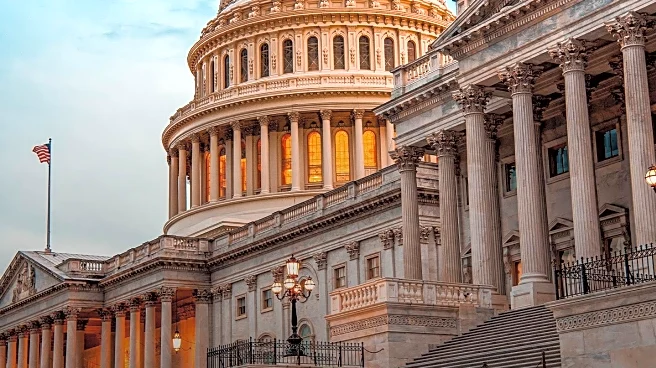What's Happening?
The U.S. health care system is confronting a 'triple shock' due to the scheduled expiration of enhanced Affordable Care Act (ACA) tax credits, rising costs for Medicare and Medicaid, and the impact of tariffs
on pharmaceuticals and medical supplies. Brian O’Connell, a senior insurance plans analyst, describes this situation as a 'three-headed monster' affecting the medical supply chain. Medicare Part B premiums are projected to increase by 11.6% in 2026, driven by higher healthcare utilization and legislative changes. Additionally, inflation and tariffs have increased the cost of pharmaceuticals and medical supplies by 3% to 8% over the past year. These factors are leading to higher out-of-pocket costs for Medicare Advantage beneficiaries and increased interest in short-term and supplemental health plans.
Why It's Important?
The expiration of ACA tax credits could significantly impact millions of Americans who rely on these subsidies to afford health insurance. Without renewal, families may see their monthly premiums more than double, potentially leaving 4.2 million Americans uninsured by 2035, according to the Congressional Budget Office. Rising costs are also affecting employer-based health insurance, with employers facing pressure to limit coverage options due to increased expenses. This situation poses a financial planning challenge for consumers and insurers alike, as they navigate higher premiums and narrowing networks. The broader implications include potential reductions in access to care and increased financial strain on households and businesses.
What's Next?
If Congress does not extend the enhanced ACA tax credits, households may face significant financial burdens, leading to potential increases in the uninsured population. Employers will need to make tough decisions regarding health care coverage for their employees, balancing cost management with employee welfare. The health care industry may see shifts towards more affordable health plan options, such as short-term and supplemental plans, as consumers seek ways to manage rising costs. Stakeholders, including policymakers and insurers, will need to address these challenges to prevent further disruptions in the health care system.
Beyond the Headlines
The ongoing challenges in the U.S. health care system highlight ethical concerns regarding access to affordable health care and the sustainability of current models. As costs continue to rise, the disparity between those who can afford comprehensive coverage and those who cannot may widen, raising questions about equity and fairness in health care access. Long-term shifts may include increased advocacy for policy changes to address these systemic issues and ensure that health care remains accessible to all Americans.










